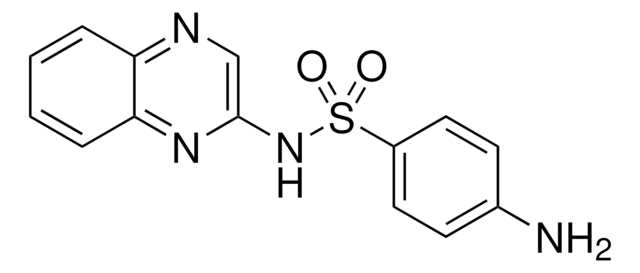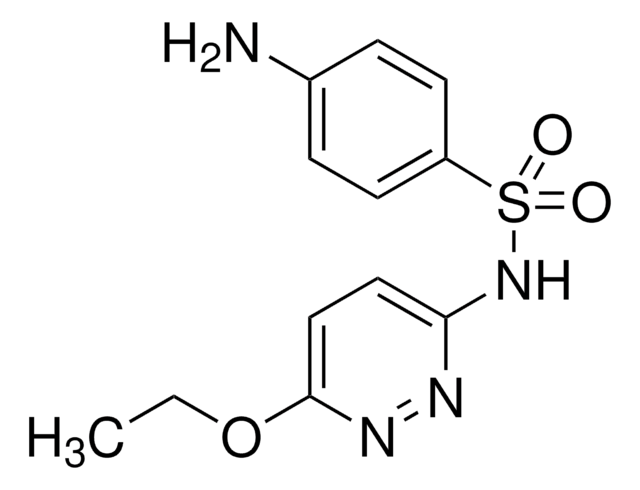46858
Sulfamethoxypyridazine
VETRANAL®, analytical standard
Synonym(s):
N1-(6-Methoxypyridazin-3-yl)sulfanilamide
About This Item
Recommended Products
grade
analytical standard
Quality Level
product line
VETRANAL®
shelf life
limited shelf life, expiry date on the label
technique(s)
HPLC: suitable
gas chromatography (GC): suitable
application(s)
forensics and toxicology
pharmaceutical (small molecule)
format
neat
storage temp.
2-8°C
SMILES string
COc1ccc(NS(=O)(=O)c2ccc(N)cc2)nn1
InChI
1S/C11H12N4O3S/c1-18-11-7-6-10(13-14-11)15-19(16,17)9-4-2-8(12)3-5-9/h2-7H,12H2,1H3,(H,13,15)
InChI key
VLYWMPOKSSWJAL-UHFFFAOYSA-N
Looking for similar products? Visit Product Comparison Guide
General description
Application
Recommended products
Legal Information
related product
Signal Word
Danger
Hazard Statements
Precautionary Statements
Hazard Classifications
Resp. Sens. 1 - Skin Sens. 1
Storage Class Code
11 - Combustible Solids
WGK
WGK 3
Flash Point(F)
Not applicable
Flash Point(C)
Not applicable
Personal Protective Equipment
Choose from one of the most recent versions:
Already Own This Product?
Find documentation for the products that you have recently purchased in the Document Library.
Customers Also Viewed
Our team of scientists has experience in all areas of research including Life Science, Material Science, Chemical Synthesis, Chromatography, Analytical and many others.
Contact Technical Service














